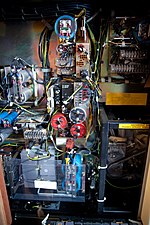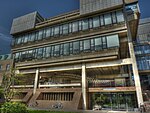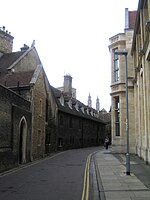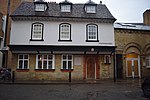University of Cambridge Computing Service

The University of Cambridge Computing Service provided computing facilities across the University of Cambridge between 1970 and 2014. It was located primarily on the New Museums Site, Free School Lane, in the centre of Cambridge, England but, in September 2013 moved to the Roger Needham Building on the West Cambridge site. The Computing Service shares a common ancestry with the University of Cambridge Computer Laboratory. Founded on 14 May 1937 to provide a computing service for general use, and to be a centre for the development of computational techniques in the University as the Mathematical Laboratory (under the leadership of John Lennard-Jones), it was not until 2001 that the provision of computing services across the University and Colleges was fully separated from computing research and teaching. On 30 March 2014, the Computing Service merged with the Management Information Services Division (MISD) of the Unified Administrative Service (UAS) to create the University Information Services department.
Excerpt from the Wikipedia article University of Cambridge Computing Service (License: CC BY-SA 3.0, Authors, Images).University of Cambridge Computing Service
Dead Man's Alley, Cambridge Newnham
Geographical coordinates (GPS) Address Nearby Places Show on map
Geographical coordinates (GPS)
| Latitude | Longitude |
|---|---|
| N 52.20348 ° | E 0.11979 ° |
Address
Dead Man's Alley
CB2 3QE Cambridge, Newnham
England, United Kingdom
Open on Google Maps








